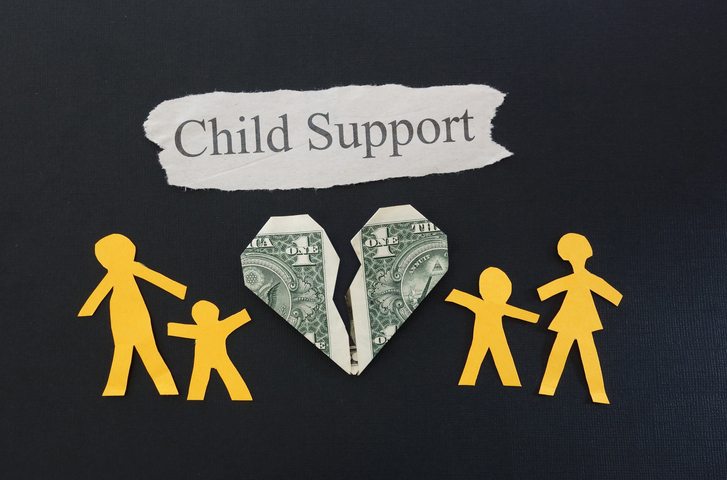
Child custody cases often include legal mandates for paying child support. The parent that receives the designation of non-custodial must pay a monthly stipend to cover the expenses generated by raising a child. Child support decrees issued by a judge end divorce proceedings or court cases that determine the legitimacy of paternity. United States courts legally finalize the monthly payments made by the non-custodial parent, which is calculated on the income of the non-custodial parent. Non-custodial parents that fail to abide by court mandated child custody payment orders face substantial fines and/or jail sentences.
This section of family law explores the general topics that comprise child support law.
How Does Joint Custody Influence Child Support?
The legal system mandates child support to make sure children receive adequate resources to continue their development. In child custody cases that result in one parent receiving complete custody of a child, the determination of child support falls on the non-custodial parent. However, a rapidly growing number of joint custody decisions have created ambiguity in child support law. The ambiguity mostly stems from the different ways state interpret joint custody guidelines. Some state use an income formula that divides child support between the parents by the incomes produced by each parent. For example, if a mother generates 60% of the family income, she is expected to pay 60% of the child support. Other states refer to the percentage of time a child spends with each parent for determining child support payments.
What is the Alternative Dispute Resolution (ADR)?
The United States legal system offers three methods for parents to determine child support. Parents have the opportunity to avoid court by reaching an agreement reached after informal negotiations. If parents cannot come to an agreement, a court decides who is primarily responsible for child support, as well as the amount of the financial obligation. Parents that do not agree about child support, but want to avoid litigation, turn to alternative dispute resolution for a child support decision. ADR works similar to mediation to resolve legal conflicts.
After Reaching a Child Support Agreement
A child support agreement reached by parents must undergo the legal scrutiny in a court of law. Judges meticulously examine child support agreements not only to validate the agreements under state code, but also to ensure neither party was coerced into signing a child support agreement. In addition, judges determine whether the child support agreement places undue financial pressure on the non-custodial parent. After validating a child support agreement, the judge includes the agreement as part of the divorce settlement. If either parent violates a child support agreement, the other parent has the legal option to seek enforcement by going to court.
Child Support Out of Wedlock
Family law in the United States declares the husband of a married couple to be the father of a child. However, the same legal presumption does not exist for children born out of wedlock. Without the legal establishment of paternity, a father has no rights when it comes to shared custody or even visitation. An unwed father cannot have any influence on the decisions made for raising a child. However, after the establishment of paternity, an unwed father can face a child support decree that is similar to the child support decrees issued in divorce cases.
Know your legal rights under your state’s child support laws by contacting a family law attorney that specializes in child support cases. Child support cases often involve complicated court ordered stipulations that require the services of an experienced lawyer. Most family law attorneys that take on child support cases offer free consultations to help clients understand where they stand in the litigation of child support cases.
